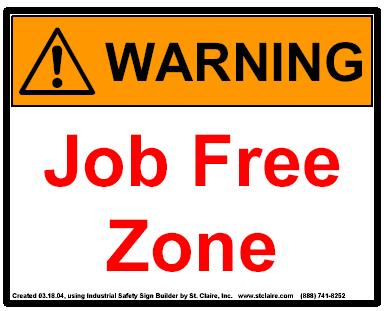U.S. Chemical Industry: Worst of Times, Best of Times
Bad times for U.S. chemical industry workers:
Across the country, 1 in every 10 chemical-related jobs has vanished in the past five years -- nearly 100,000 workers -- and that number would be worse if not for a surge in one segment, pharmaceuticals.
The chemical industry's eight-decade run as a major exporter has ended, with a $19 billion trade surplus in 1997 becoming a $9.6 billion deficit last year, according to the American Chemistry Council.
But good times for U.S. chemical industry executives.
The Dow Chemical Co. gave its top executive a $2.3 million bonus, a move that one area leader says sends a “bleak message” to a community where the corporate giant has been cutting jobs for two years.
In addition to the bonus awarded in 2003, William Stavropoulos received a base salary of $1.3 million, plus millions more in other incentives and benefits, according to the company’s proxy statement.
The American chemical industry has many problems:
Troubles began over a decade ago with the fall of communism, when countries of the former Soviet Union -- as well as China -- discovered they could compete in the world market for chemical products. Cheap labor and a freewheeling attitude toward safety and the environment helped them keep prices low.
As the global economy slowed, industries that consume chemical products came to depend on those lower prices to offset declining sales and profits. U.S. chemical makers struggled to cut costs and keep up. Then, around 2000, an unexpected problem hit: Natural gas prices went up.
Chemical plants are especially sensitive to natural gas prices because they use it both as a fuel and as a "feedstock" or ingredient in making plastics, resins, fertilizers and more. In the past five years, U.S. natural gas prices have roughly doubled as more and more electrical plants consume the clean-burning fuel but supplies stay stagnant. Other parts of the world -- including Western Europe -- pay far less.
But American chemical industry executives have few problems:
In addition to his base salary and bonus, Stavropoulos was paid $163,473 in other compensation, which was primarily for tax preparation and financial advice related to his return to the CEO position, according to the proxy statement.
Stavropoulos also received deferred or restricted stock awards valued at $6.5 million; 350,000 shares that are 10-year, market-priced options; $977,572 in long-term incentive payouts from deferred stock granted in 1998 and dividend unit awards granted prior to 1999; and $184,852 in other compensation for items ranging from relocation benefits to insurance.
And American workers are pissed off:
Kenny Perdue, secretary-treasurer of the state AFL-CIO, said today the bonus “flies in the face of the workers.”
“The workers are out there doing their jobs, trying to keep their pay and benefits and feed their families and the CEO is awarded a $2.3 million bonus that in his own mind he believes he’s worth,” Perdue said. “And all along the company is laying off workers. Why couldn’t the company use some of this bonus to keep workers?”
